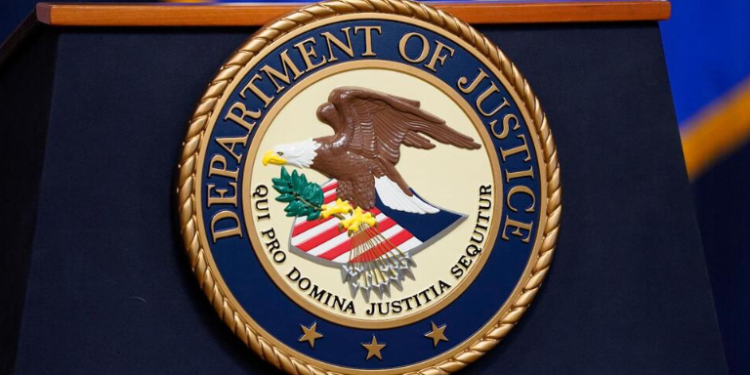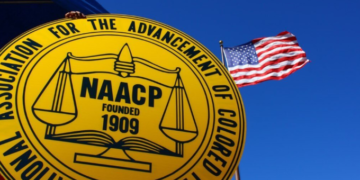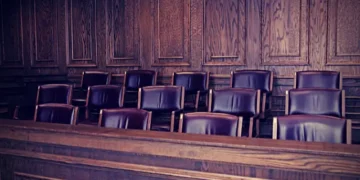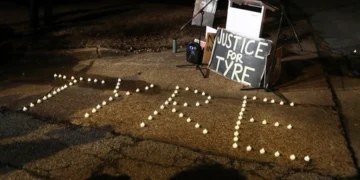Dec 17, 2024 Story by: Editor
Damian Williams, U.S. Attorney for the Southern District of New York, and Kristen Clarke, Assistant Attorney General for the Civil Rights Division, announced that a Department of Justice (DOJ) investigation has determined the Mount Vernon Police Department (MVPD) has engaged in systemic practices that violate constitutional rights.
The DOJ’s investigation revealed several troubling patterns within MVPD, including:
- Excessive use of force, such as unnecessarily escalating minor incidents and deploying tasers or closed-fist strikes on individuals who are already restrained or subdued.
- Conducting unlawful strip searches and body cavity searches, which persisted until at least 2023.
- Arresting individuals without probable cause.
Additionally, the DOJ expressed concerns about MVPD’s vehicle stop procedures, evidence collection methods, and potential discriminatory policing in predominantly Black neighborhoods. These issues are linked to deficiencies in MVPD’s policies, training, supervision, and accountability mechanisms.
Findings Highlight Systemic Failures
“Our investigation has found reasonable cause to believe that MVPD engages in a pattern or practice of conduct that violates the constitutional rights of the citizens it has sworn to protect,” said Damian Williams. He added that systemic deficiencies have led to repeated instances of excessive force, illegal arrests, and unlawful searches. Williams acknowledged recent steps by the City of Mount Vernon and MVPD towards constitutional policing and expressed optimism for continued progress.
Kristen Clarke echoed this sentiment, stating, “Our investigation into the Mount Vernon Police Department reveals a pattern and practice of unlawful conduct that can and must be addressed.” Clarke emphasized the need for comprehensive reforms and highlighted the DOJ’s readiness to collaborate with Mount Vernon officials to achieve constitutional policing and rebuild community trust. “Police reform will not happen overnight,” she said, noting that similar DOJ investigations nationwide have led to meaningful changes in law enforcement practices.
Scope of the Investigation
The DOJ launched the investigation on December 3, 2021. Over the course of the inquiry, attorneys and staff from the U.S. Attorney’s Office for the Southern District of New York and the Civil Rights Division’s Special Litigation Section conducted interviews with MVPD officers, local residents, legal representatives, and civic organizations. They also reviewed arrest reports, use-of-force documentation, policies, training materials, and internal affairs records.
The investigation was conducted under 34 U.S.C. § 12601 (Section 12601), which prohibits law enforcement agencies from engaging in practices that deprive individuals of constitutional or federal rights.
Community Engagement and Next Steps
The DOJ has committed to engaging with the Mount Vernon community to gather input on remedies for the identified issues. Members of the public can submit recommendations via email at community.mvpd@usdoj.gov or by calling 1-866-985-1378.
A virtual community meeting will be held on December 16, 2024, at 6:00 p.m. ET, to discuss the findings and next steps.
Broader Context and DOJ Initiatives
The MVPD investigation is one of 12 similar inquiries initiated by the DOJ since April 2021. Findings have already been issued for police departments in Louisville, Minneapolis, Phoenix, Lexington, Trenton, Memphis, and Worcester, with ongoing investigations in other jurisdictions, including the New York City Police Department’s Special Victims Division and the Louisiana State Police.
The U.S. Attorney’s Office for the Southern District of New York has previously overseen police reforms in Beacon and Yonkers. In addition to the MVPD findings, it continues its investigation into the NYPD’s Special Victims Division.
Case Oversight
The case is managed by the Civil Rights Unit of the Southern District of New York’s Civil Division and the Civil Rights Division’s Special Litigation Section. Assistant U.S. Attorneys Lucas Issacharoff and Jacob Lillywhite, along with Trial Attorney Nicole Porter, are leading the case. Source: DOJ

















